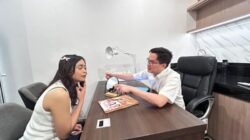_____________
OPINIONBy Johnson OkweraConsidering the Global Theme for the 2025 International Youth Day; “Youth Empowerment for a Sustainable Future” along with the slogan “Empowering Youth, Building Tomorrow”; the focus highlights the essential role of young individuals in shaping a more sustainable, fair, and creative world, with a strong emphasis on promoting youth involvement in global economic growth, while also motivating them to offer solutions to significant global challenges and enabling them to assume leadership positions within their communities.The Uganda National Population and Housing Census 2024, as reported by UBOS, indicates that more than 70% of Uganda’s population is under the age of 30. Specifically, 22.7% of the population is in the 18-30 age bracket: slightly more than half of the country’s registered voters. This youth bulge provides them with significant numerical power, making them a major political force to consider. The demographic trends clearly highlight a youth advantage, one that demands close attention.
In Uganda, young people form a strong group that goes beyond ethnic, gender, and socioeconomic boundaries. They embody their perspective on life, which is shown through elements such as attire, art, creativity, mindset, fashion, values, and music.
Tolong support kita ya,
Cukup klik ini aja: https://indonesiacrowd.com/support-bonus/
Young people represent a significant market, with numerous entities competing for their focus; from advertisers, both big and small companies, to the media and large corporations; including politicians, sports, fashion, and entertainment sectors, religious groups, healthcare providers, schools, and local organizations.
Nevertheless, they face numerous challenges typical of the millennial era, such as dealing with high levels of unemployment. The most severe issue is the significant rates of HIV infection, which, as always, presents alarming statistics that negatively impact adolescent girls and young women. This is due to societal attitudes and upbringing that limit their ability to make important decisions regarding their adult lives and often leave them without the essential support, care, guidance, enabling policies, and available resources they need.
This has worsened the situation, pushing many to make not only dangerous but also damaging decisions such as engaging in transactional sex or having multiple sexual partners, extreme body modifications, and efforts to alter their natural appearance like skin lightening, breast and hip augmentations, and body tattooing, all in an attempt to enhance their physical attractiveness to attract older men who are financially secure and can support their lives.
In preparation for the 2026 General Elections, the younger generation has come under greater attention from political figures. There have already been instances where young people have received significant cash distributions, particularly in the impoverished areas surrounding Kampala, and at times they have been portrayed as central to acts of criminal violence, often seen as weak and in need of protection.
Fortunately, recent studies have challenged some of these negative stories and views by recognizing the beneficial roles of young individuals in society, highlighting the importance of their participation in decision-making to create sustainable and valid solutions for various social issues. The 2007 World Development Report pointed out that youth constitute Africa’s greatest resource, offering significant opportunities alongside considerable challenges.
According to the UN Secretary General’s insight, “realizing the Sustainable Development Goals demands a major transformation that can only occur if we enable young people and collaborate with them as equals.” To achieve this more effectively, families, lawmakers, businesses, higher education institutions, and other civil society groups should adopt an all-Government; All-of Society strategy. This approach emphasizes an inclusive, deliberate, and respectful partnership with youth, where power is shared, contributions are acknowledged, and the ideas, viewpoints, skills, and assets of young people are incorporated into the development and implementation of programs, strategies, policies, and financial systems.
It is significant that initiatives such as Youth Livelihood Programs and Skilling Uganda represent a constructive step in this endeavor, despite having achieved only modest results thus far. Young people deserve recognition as recipients, collaborators, and leaders in societal development and as individuals capable of shaping their own future.
Those who are most left behind need specific support to tell their own stories and be given opportunities for inclusive conversations, enabling them to play a central role in realizing their natural potential to lead sustainable, healthy lives, with meaningful careers and active participation as citizens who can create a sense of pride and leave a well-earned legacy. It is now the right moment to deliberately prepare young people for the future, just as we prepare the future for them.
The author holds a Commonwealth Scholarship and has an MSc in Global Development from The Open University in the United Kingdom.
Provided by SyndiGate Media Inc. (Syndigate.info).







